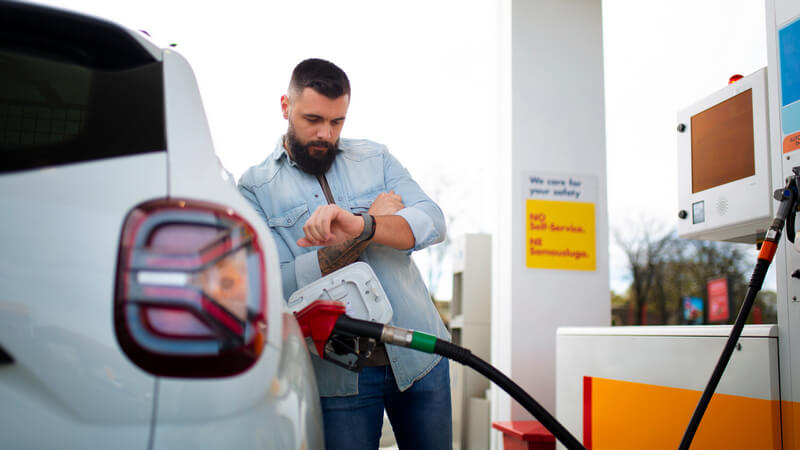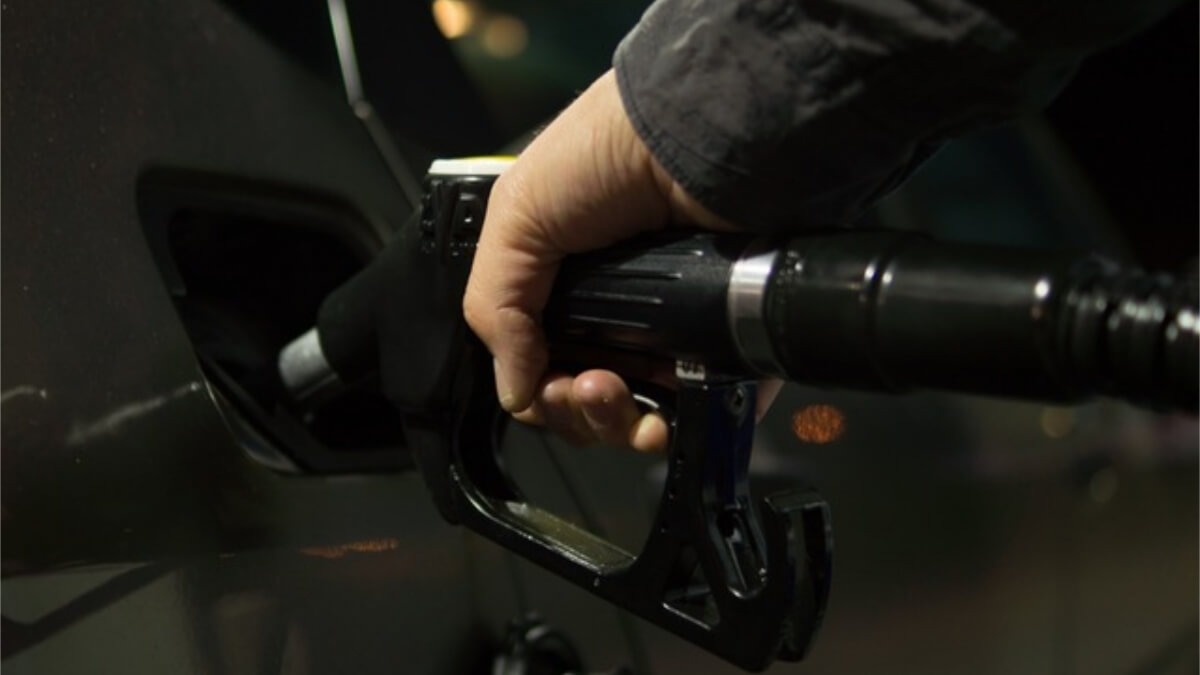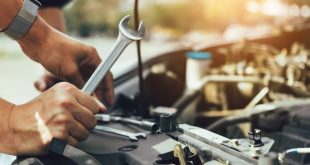We’ve all stood at the pump wondering—Is premium fuel really worth the extra cash? Will cheap gas damage your engine in the long run?
The short answer: For most cars, probably not. But when it comes to fuel quality and octane ratings, the truth is, it’s a bit more complicated than just choosing the cheapest option.
In this guide, we’ll cut through the noise and break down what really matters—octane ratings, additives, and when it makes sense to invest in premium fuel versus when regular gas will do the job just fine.
By the end, you’ll know exactly what fuel your car needs, when to spend extra, and how to avoid unnecessary fuel system maintenance.
Let’s dive in!
What Are Octane Ratings and Why Do They Matter?
You’ve seen the numbers—87, 89, 91, 93—at the pump. Those are your octane ratings.
Octane ratings tell you how well the fuel resists pre-ignition (aka knocking). Your engine mixes air and fuel, and it should ignite when the spark plug fires. If the fuel ignites too early, you get knocking—that annoying sound that can mess up your engine over time.
Higher octane means less chance of knocking. That’s why premium fuel (91 and up) is made for high-performance engines that run under more pressure. You’ll see it in turbocharged engines, high-compression setups, and cars that need fuel to handle extra stress without pre-igniting.
The Myth of Premium Fuel – Is It Always Better?
It’s easy to think premium fuel’s better because of the name. It sounds fancy, costs more—must be good for your car, right? Many drivers fall for this, thinking premium is a treat for their engine. But here’s the truth.
Over the years as a mechanic, I’ve had countless customers ask if premium fuel is worth it. I always tell them the same thing: unless your car specifically needs it, you’re just paying extra for something your engine won’t use. I’ve seen too many folks spend more at the pump when regular gas would have worked just fine.
And that’s the key—premium fuel isn’t better for all cars. Some engines need it, but for most vehicles on the road, you’re not getting any extra benefits.
Premium Doesn’t Mean “Better” for All Cars
Many drivers debate premium fuel vs regular fuel, thinking premium is cleaner or more powerful for every car. But the reality is, unless your car actually needs it, you’re not getting any real benefits. Premium’s main job is its higher octane rating (91-94), which is perfect for high-performance engines that need to avoid knocking.
For most cars on the road today—especially those designed to run on regular 87-octane—premium fuel won’t do much for vehicle performance, fuel economy, or cleanliness. In fact, using premium in a car built for regular gas might even hurt your efficiency a little. Regular engines just don’t need that extra resistance to combustion.
Do Premium Fuels Have Better Additives?
Many people choose premium thinking it has better additives to keep their engine cleaner. But here’s the catch—regular gas already contains the same government-mandated additives that do the job just fine.
The EPA makes sure that all gas sold in the U.S.—regular or premium—has to meet a minimum standard for detergents to prevent buildup in your engine. So, no matter what fuel you’re using, your engine’s still getting cleaned.
Now, some brands do offer what’s called ‘Top Tier’ gasoline, which packs in more detergents than what the EPA requires. But here’s the thing: Top Tier gas comes in both regular and premium. So, if you want cleaner fuel, it’s more about picking the right brand than worrying about octane. What matters is whether the gas is Top Tier.
You Call It A Scam. They Call It Marketing.
A lot of this ‘premium is better’ talk comes from marketing. Fuel companies pour millions into convincing us that premium is superior with ‘special blends’ and ‘advanced cleaning agents.’ But most of that? It’s just marketing spin.
Take Shell’s nitrogen-enriched premium fuel, for example. It’s marketed as preventing ‘gunk’ buildup, but you’ll find the same cleaning benefits in Shell’s regular fuel too. It’s easy to fall for these ads when you’re just trying to do right by your car. But remember—paying more doesn’t always get you more unless your car actually needs premium.
When Premium Is Unnecessary
If your car’s manual says regular gas, stick with it. A lot of drivers switch to premium hoping for better performance or a longer-lasting engine, but for those cars, premium’s just more expensive—not more effective. You won’t get more power or better engine health. You’ll just pay 20 to 60 cents more per gallon with nothing to show for it.
Now, if your car’s older and starts knocking on regular gas, premium might stop the knock for a bit. But that’s just a band-aid. The real problem could be carbon buildup or engine wear, and that’s something you want a mechanic to check out—not just switch to pricier gas.

Cheap Gas vs. Top Tier Gasoline: What’s the Difference?
Not all gas is the same. Sure, it all starts from the same base, but there’s a difference between what you get at the corner no-name station and the fuel from bigger brands.
What Is Cheap Gas?
‘Cheap gas’ usually refers to fuel sold at off-brand or independent stations. It’s not bad gas, but it might lack the extra additives you get from pricier options. The EPA requires all gas in the U.S. to meet minimum standards, so even the cheapest fuel has enough detergents to keep your engine clean. But cheap gas? It doesn’t go the extra mile for engine protection.
What Is Top Tier Gasoline?
Top Tier gas is a certification backed by major automakers like BMW, GM, and Toyota to guarantee better fuel quality. For gas to be labeled as Top Tier, it has to include more detergent additives than the EPA requires. These extra detergents help with fuel injector cleaning, prevent carbon buildup, and reduce deposits that could mess with your engine’s performance over time.
Brands like Chevron, Shell, ExxonMobil, and Texaco offer Top Tier gas. You can spot it by the label or sticker on the pump. The whole idea is that using gas with more detergents helps your engine run smoother and keeps long-term issues at bay—especially in newer engines with fuel injection systems.
Do You Really Need Top Tier Gas?
So, does that mean cheap gas will kill your car? Not really. If your car’s fairly new and has a modern onboard computer, it can handle slight differences in fuel quality. Filling up with cheap gas every now and then won’t cause any immediate issues, and you probably won’t notice a performance hit. But in the long run, things might start to change.
Cars with direct fuel injection or turbocharged engines are more likely to get carbon buildup over time. That’s where Top Tier fuel comes in—it’s designed to keep those deposits down and help your engine run cleaner and smoother for longer. If you’re regularly using off-brand, non-Top Tier gas, you could start seeing a drop in performance and fuel economy after thousands of miles because of clogged injectors or carbon buildup.
Take this: Toyota engineers ran tests on engines for 10,000 miles with different fuels, and the engines running on Top Tier gas came out cleaner. That can help you avoid costly repairs down the line. Cheap gas won’t destroy your engine, but Top Tier gives you extra protection, especially if you’ve got a high-performance or newer car.
Will Premium Fuel Improve Your Mileage?
One of the most persistent beliefs about premium fuel is that it somehow improves your car’s fuel economy, but is there any truth to this?
The Myth of Better Mileage with Premium
The idea that premium fuel boosts your mileage comes from the notion that it’s a ‘superior’ fuel. If it costs more, it’s gotta give you more, right? But here’s the hard truth: for the vast majority of cars on the road, premium fuel won’t give you better mileage.
It all depends on your car’s engine. If your car’s made to run on regular 87-octane fuel, switching to premium (91 or higher) won’t change your fuel economy. Regular gas has all the energy your engine’s designed to use. In fact, premium can have a little less energy per gallon since it’s built to resist knocking, not to improve fuel efficiency or give you more power.
So, if you’re driving a regular, non-performance car, switching to premium won’t make your car magically go further on a tank. In fact, you might even see a small drop in efficiency since your engine isn’t built to use that higher-octane fuel.
A lot of drivers swear they get better mileage with premium, but that’s usually in their heads. The reality is, unless your car’s engine is made for premium fuel, you’re not going to see much of a difference in mileage.
When Premium Fuel Can Improve Mileage
Now, there are some cases where premium fuel can help with mileage, but it depends on the car. If you’re driving something with a high-compression engine, a turbocharger, or a supercharger, those engines are built to run better on premium fuel. These engines compress the air-fuel mixture more tightly than regular engines, so they need higher octane to stop knocking. In those cases, premium helps the engine work at its best, which might give you a small boost in mileage.
But even then, the mileage boost is usually pretty small, and you might not notice it in your day-to-day driving. The real benefit of premium fuel in these engines is more about keeping the engine running smoothly and avoiding long-term damage than getting much better fuel economy.
Why Mileage Can Vary Without Premium
If you’ve noticed a drop in fuel economy and think premium fuel will fix it, there’s probably something else going on. Several factors can impact your gas mileage, including:
- Driving habits: Gunning the accelerator, speeding, and stop-and-go traffic are big mileage killers.
- Weather conditions: Cold weather makes your engine work harder, which burns more fuel. Some drivers think premium gas improves mileage, but a lot of times it’s just better weather conditions helping out.
- Tire pressure: Low tire pressure increases rolling resistance, so your engine has to work harder and burn more fuel.
- Maintenance: A dirty air filter, clogged fuel injectors, or worn spark plugs can all drag down your mileage, no matter what fuel you’re using.
These things have a way bigger effect on your gas mileage than just switching to premium fuel in a car that doesn’t need it. In fact, the extra money you’re spending on premium would be better spent on regular car maintenance. Simple stuff like regular oil changes, keeping the tires inflated, and driving a little smoother will do a lot more for your mileage than going with premium gas.
The Verdict: Can Cheap Gas Kill Your Car?
The idea that cheap gas will ruin your car is a fear many drivers have, but in most cases, it’s largely unfounded. Modern engines have computers that can adjust to small changes in fuel quality. For most of us using regular engines, filling up with cheaper, off-brand fuel won’t cause any immediate issues. As long as it meets EPA standards, it’ll keep your engine running just fine.
That said, over the long haul, using cheap gas with fewer additives could cause problems. Cheap gas doesn’t usually have the extra detergents you get in Top Tier fuel, which are there to reduce carbon buildup and prevent deposits from gumming up your fuel injectors. Without those additives, your car’s fuel system might start acting up—reduced efficiency, rough idling, or even misfires—after a few thousand miles. So, while cheap gas won’t wreck your car overnight, using it all the time could shorten the life of some engine parts and lead to more repairs down the road.
So, when should you spring for premium gas? It all comes down to your car’s engine. If your manual recommends or requires premium fuel—especially in high-compression, turbocharged, or performance vehicles—using cheap gas can lead to knocking and long-term damage. In those cases, premium isn’t just an upgrade; it’s a must to keep your engine healthy. For most other cars, though, regular gas that meets Top Tier standards is all you need to keep things running smoothly without spending extra.
Not Sure if Your Car Really Needs Premium?
The best way to know is by consulting your car’s repair manual. It’s the same tool mechanics use to check specific requirements for each vehicle. At eManualOnline, we offer detailed, affordable repair manuals that give you all the insights you need to make the right decisions for your car—whether it’s fuel choices, maintenance schedules, or troubleshooting problems. Make sure your next stop at the pump is an informed one!
>>> Download your manual here <<<









Most cars need unleaded fuel for the catalyst in the exhaust to work, some older cars have high compression engines and they need a high octane fuel, it used to be a small amount of lead to prevent pre-combustion due to the high compression, but now they use benzine to do the same thing, so unless you have a high compression engine just buy unleaded fuel.
So are we saying that on diesel fuel?
That premium fuel does nothing for them dirty engines?
I’ve been using premium fuel on my 3.5l twin turbo thinking I’m doing some good for the engine but it always stuck in my mind what?
As I fill up I’m using premium because the label say so but how am I to know it’s just a label could be the same none premium shit in it!
And answer to that would be greatly appreciated
This is mainly for gasoline and not diesel, though, we feel the same thing would apply. The absolute best and most efficient way to test it out is measure your Miles per Gallon and Mileage to the Tank after a fill-up of premium fuel, then repeat with a lower grade fuel & compare the results after 2-weeks, or however long it takes you to complete the test per a full tank of gas with 2 different fuel grades.
This will provide you the results to show if it really is impacting mileage and performance.
Let us know your results!
Most cheaper fuels do not have the additives that say Exxon has. They do add more non petroleum fuel which contributes to fewer miles to the gallon. In diesel it is vegetable oil.
Does it run? Yes but not as good gas mileage and will burn dirtier.
Walmart offers additives at an extra add on price.
I recommend filling at Exxon and Walmart by alternating fillips. Do your own test.
I agree with your assessment of most additives as being of questionable value. Mercedez tells me to use 95 octane in my R350. In California they market a maximum of 91 octane which is labled “premium”. You are telling me this doesn’t make a difference either in the longevity or the performance of the engine? Please advise.
For newer cars like a Mercedes, it is likely required to use the highest octane fuel available in your area. The best way to check though, is test out a full tank of the highest octane gasoline you could find and see how the car performs in terms of mileage & responsiveness. Then test out a tank of the lowest grade gasoline and see if you notice a difference in driving performance and mileage. Here, I prefer the highest octane version of gasoline’s. Let us know what you discover!
The manufacturer of my vehicle states “Premium Fuel Only” in various locations on the vehicle and in the vehicle documentation.
Unless I missed it I didn’t see anyone addressing that.
A truthful answer is appreciated.
Hi! Of course, if your car is equipped with a high compression engine, you’ll need premium fuel to prevent pre-detonation. This article was written with regular vehicles with lower compression engines in mind. The main point was to be wary of petroleum companies’ ads, suggesting that everyone should use “gold” fuel and benefit from cleaning additives and all… This statement is actually quite wrong, relying on the fact that fuel used to be dirty, leaving deposits while burning that ultimately clogged injectors and that most people who owned a car in the ’70s still think it’s the case (a little like repair shops trying to sell “tune-up” packages on vehicles equipped with spark plugs and coolant good for 100,000 miles… lol).
But things changed a lot in recent years, and after 15 years in the field, I still haven’t seen even one car with clogged injectors. Fuel injection problems are usually related to faulty sensors or defective injectors these days… and the type of fuel used simply isn’t correlated at all with electrical and electronic faults.
With that being said, following the manufacturer’s recommended specification is always your best bet. If your car’s manufacturer recommends premium fuel, your car probably has a high compression engine. In that specific case, yes, you need premium fuel.
However, what you really need is the higher octane level, not the “magic” additives they show on TV.
Hope it helps! ✌
Okay, I worked at an oil refinery which makes gasoline, diesel and jet fuel. The basic recipe for gasoline must meet federal guidelines regardless of whether it’s regular or premium. That being said, what you’re really paying for is higher octane and all the marketing hype you can swallow. Proprietary additives, ie detergents, snake oils and that feel good feeling that you’ve done something special for your car is quite the slight of hand. All gasoline blends for sometime have mandated oxygenates which actually decreases milage due to reduced btu’s in the fuel.
Early attempts to oxygenate fuels used MTBE a highly corrosive to all fuel systems (car fires) and a long term pollutant in water, once required by EPA was removed by the same. Older cars were the reason for oxygenated fuels but since computers have dominated emission control systems, newer cars don’t benefit from reformulated fuel as much. Getting the lead out was an earlier phase out since lead poisons catalytic converters and people according to the EPA. High compression engines benefit from premium fuel, but variable timing on newer engines reduces predetonation or pinging. As for better mileage, the only real test is one you do yourself.
En mi caso un VW Jetta motor 2.5. en la etiqueta marca poner gasolina regular, pero su rendimiento era menor, solo un poco, tal vez 10 kms. menos, pero en cuestión de potencia, si se presentaba la pre-ignición y el famoso cascabeleo en baja o al querer acelerar. Por esta razón, opté por premium; tanto el cascabeleo como la pérdida de potencia desaparecieron, aunque en México el máximo octanaje es 91.
Unfortunately, not mentioned is the ethanol problem that is used as an additive to avoid knock.
In gasoline, there is 5 or 10 % ethanol, as a replacement for MTBE and lead. And there is a very nasty effect, in particular for older cars and motorcycles, as the materials selected at the time were not designed for this particular gasoline/ethanol mixture. When motorcycles or cars are left not used for a longer period of time (say one or more years), the ethanol has the nasty habit to absorb water from the air above the liquid in the fuel tank… In itself, not a disaster, but the water in the gasoline-ethanol mixture attracts micro-organisms that thrive on that mixture while excreting fluids that promote corrosion of the tank walls, fuel pump and rubber hoses, and rubber support parts.
The damage is significant and difficult to clean, as I can tell from experience. Cleaning the mess is most irritating as the rubber has become a black goo… and fuel pumps and hoses often have to be replaced.
To solve this problem, the best solution is to tank gasoline that does not contain ethanol when one knows that the car or motorcycle goes into winter storage.
True — when storing a car for a year or more, and no matter whether the fuel used contains ethanol or not, it is always recommended to:
1- Fill up the fuel tank: Filling up the fuel tank will reduce the volume of air, as you discussed above, and thus, will prevent moisture from accumulating inside the tank.
2- Add a fuel stabilizer: Adding a fuel stabilizer to the gas tank will help keep the fuel fresh for a longer period of time by preventing oxidation and the formation of varnish and gum (Not to mention that letting fuel sit in a tank for over a year without fuel stabilizer will cause the fuel to break down and become unusable at some point).
3- Run the engine: Running the engine for a few minutes with the fuel stabilizer in the tank will help distribute the treated fuel throughout the fuel system and keep the other components in the fuel system healthy for longer.
4- Use fuel additives if necessary: There are fuel additives specifically made for older cars and motorcycles, addressing the issues you discussed above resulting from fuel systems being designed differently in the past.
So yes, I agree with your points, but it’s important to mention that there are several ways to offset the presence of ethanol in regular gas, and several premium fuels already contain additives designed especially to prevent fuel breakdown, such as:
• Antioxidants: These are additives that help prevent the fuel from breaking down due to exposure to oxygen by inhibiting the oxidation process, which can lead to the formation of gums, varnishes, and other types of deposits.
• Stabilizers: Fuel stabilizers help prevent the fuel from deteriorating over time by slowing down the chemical reactions that can cause the fuel to break down and lose its quality.
• Metal deactivators: These are additives that help prevent the fuel from reacting with metals in the fuel system, such as copper and bronze. They work by forming a protective film on the metal surfaces that prevents corrosion and other types of damage.
• Demulsifiers: Some premium fuels may contain demulsifiers that help separate water from the fuel, and thus reducing the risk of ethanol reacting with water.
So all in all, yes, you would be right — but it’s not always simple to find fuel completely exempt from ethanol in America, and luckily there are ways to go around that.